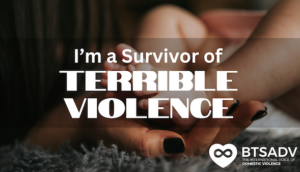
By Jenn Rockefeller
A teenager’s world is ever-changing. They face pressures that adults likely did not at their age. Pressures in both school and their social circles can begin to intensify. When a teen begins to reach physical maturity, their world can become a mixture of confusion, anxiety and further pressure from peers. They may see their friends begin to explore physical relationships. They may not yet understand what it means to consent to such relationships. This is why is it vital for parents to discuss with their teens just what consent is and what it means for them.
Definition
Briefly, consent is when someone gives clear permission for something to happen, whether it has to do with any sexual activity or not. Per the article, consent lines can become blurred in different states, although we are moving to a space where we agree that consent should be freely given, reversible, informed, enthusiastic, and specific.
What consent is not
The age-old “no means no and yes means yes” should be clear cut. But many times, the lines can become blurred. Just because someone says yes at one point, does not mean the answer will be yes in the future. A person can change their mind at any time before or during a sexual act. Never assume consent; rather, it is best to always ask.
With that said, it is also not consent if you are afraid to say no. You are under no obligation to say yes to someone.
Teens and consent
When your child becomes a teenager, it is of the utmost importance that they understand healthy boundaries and what they want and do not want when it comes to dating.
Talking with your child about consent is vital. It is important to stress that it is your teen’s body and they have the right to establish and maintain boundaries that make them feel comfortable.
Below are some conversation starters and other talking points that might prove to be useful when you sit down and talk with your teen:
· Do you know what consent is? (Some teens might not actually fully grasp what it is.)
· Do you know what a boundary is?
· What do you know about physical intimacy?
· How do you feel about being intimate with someone?
· Your body is your body. It is your space. If you don’t want someone to hug, kiss or touch you, you have a right to say no.
Asking open ended questions provides more opportunity to have a back and forth conversation with your teen.
Resources
When talking with your teen about consent, it might be helpful to have additional resources handy if they ask you questions. Below are some websites that provide some supplemental information that your teen might find beneficial.
The UK website Disrespect Nobody talks about signs to spot with regards to consent and signs to be on the lookout for when giving it (or not giving it). It is important for teens to know that body language also plays a part in consent.
The Mount Sinai Adolescent Health Center provides excellent insight for parents in how to talk to their teen about consent and healthy relationship boundaries. They stress talking with your teen, not at them. (There is a difference!)
The UK Family Lives website discusses why talking with your teen about consent is important. For example, the site mentions helping teens understand just what consent is and what fears/pressures the teen may be facing.
The site Reach Out is an excellent resource for parents to help their teen understand just what consent means for them. It discusses a teen’s ever-changing world and ways to help your teen learn about what their own boundaries are.
Ongoing discussions
As your teen gets older, it is important for you to keeping engaging with them about consent. Be certain your teen understands that consent can be withdrawn at any time. Teens do not have to do anything that they do not want to do or makes them feel uncomfortable. Keep the lines of communication open with your teenager to ensure they know they can approach you whenever they feel the need to talk.
If you or someone you know is in an abusive relationship, there is help. You can visit the Break the Silence website at www.breakthesilencedv.org or chat with one of our helpline advocates at 855-287-1777.









